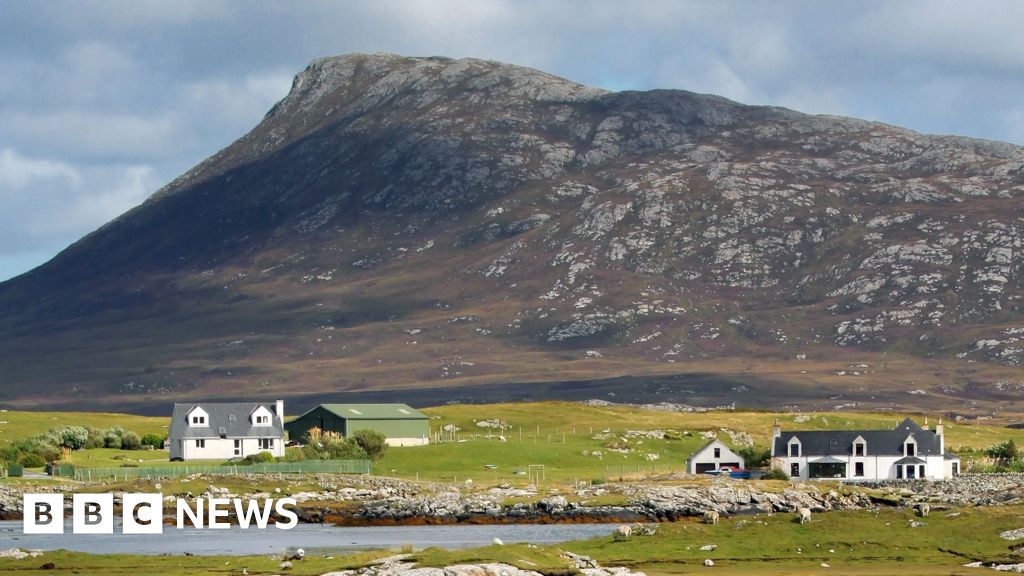Jobs
Would a £150,000 wage tempt you to a Scottish island? – BBC News

Image source, Getty Images
- Author, Paul Hastie
- Role, BBC Scotland News
Would £150,000 tempt you to move to one of the most beautiful parts of Scotland?
One of the UK’s most remote GP practices, serving the Hebridean islands of Uist and Benbecula, is offering the salary to attract new doctors to live and work there.
On the nearby Isle of Rum, parents are seeking a new school teacher for its five primary pupils and two nursery children – with a package worth £68,000
It is part of efforts to tackle a recruitment crisis in many rural services.
For residents, these are more than just jobs.
It is about bringing new people to live and work at the heart of Scotland’s island communities.
“We always look at who is coming, the person and their family,” said Gordon Jamieson, chief executive of NHS Western Isles.
“We’re looking at opportunities for partners, not just the person who has been successful.
“It is not everybody’s choice to come and stay in a remote island community.
“For healthcare professionals, when you choose a place like Uist and Benbecula, it is remote in terms of the job.”
Image source, Benbecula Medical Practice
Based at Benbecula Medical Practice, NHS Western Isles is offering a 40% “enhanced rate” above a typical salary to attract a new team of rural GPS.
They are appealing to doctors with a “sense of adventure and passion for rural medicine”.
They would serve the group of six islands in the Outer Hebrides, with a combined population of about 4,700 people.
The health board said a big incentive was the opportunity to work in one of the UK’s “most beautiful and idyllic locations”.
But successful applicants will also get relocation expenses to help move to the islands, as well as a “golden hello” payment of up to £10,000.
Mr Jamieson told BBC Radio’s Good Morning Scotland: “It’s got to to be a certain type of person who wants that job and responsibility.
“So obviously we want to reward them. It’s not everybody’s cup of tea.
“But there are people out there from all over the world who are looking for an experience like this in remote healthcare.”
Mr Jamieson said NHS Western Isles faced a “wide range of challenges” over rural recruitment – with consultants, GPS and nurses all under pressure.
But he believes the salary is an incentive to “live and work and stay here”.
He adds: “We want a sustainable service and we want people to live in the community for a long time.”
Image source, Getty Images
Meanwhile, on the Isle of Rum in the Inner Hebrides there is a population of just 40 people – all living around the village of Kinloch.
Rum Primary School has a roll of only five pupils, aged five to 11, and two nursery children aged three and four.
Highland Council is offering an annual salary of £62,000 for their new headteacher, with remote working allowances on top of this worth more than £5,500.
The council said it had received “some interest” in the post, but the recruitment process was still underway.
A 90-minute ferry trip from the mainland, island life on Rum is described as “off-grid” with small hydro-electric schemes providing power.
The island is known for its large red deer population, with most of its land owned by Scottish government agency NatureScot.
Four years ago, four new homes were built in Kinloch.
And in 2022, four-pupil Foula Primary School, 16 miles from the Shetland mainland, offered £62,000 and a rented three-bedroom house on the island of 28 people.
Highland Council said its recruitment challenges could vary depending on the school location, with some rural positions attracting increased interest.
The local authority said it provided a “generous relocation and removal package” for teachers moving to the Highland area for permanent posts, which includes a contribution towards rental and travel.
A council spokesperson added: “Head teacher posts are also entitled to a high remote allowance and a distant island allowance, which are part of the nationally agreed conditions of service.
“Wherever possible, posts are advertised on a permanent basis to encourage applications.
“We are also currently investing in a comprehensive leadership programme for newly appointed head teachers, as well as teachers at other levels, to encourage retention and growth of staff across our schools. ”




